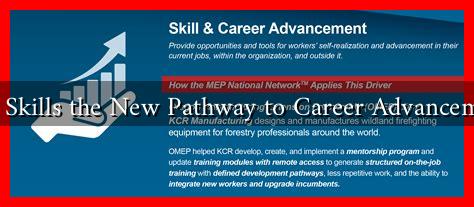-
Table of Contents
Are Skills the New Pathway to Career Advancement?
In today’s rapidly evolving job market, the traditional pathways to career advancement—such as degrees and years of experience—are being challenged by a new paradigm: skills. As industries transform and technology advances, the demand for specific skills has become a critical factor in hiring and promotion decisions. This article explores how skills are reshaping career trajectories and what this means for professionals seeking advancement.
The Shift from Degrees to Skills
Historically, a college degree was often seen as the golden ticket to career success. However, recent trends indicate a significant shift towards valuing skills over formal education. According to a report by the World Economic Forum, over 50% of employees will need reskilling by 2025 due to technological advancements. This statistic underscores the importance of adaptability and continuous learning in the modern workforce.
Why Skills Matter More Than Ever
Several factors contribute to the growing emphasis on skills in career advancement:
- Technological Advancements: Automation and artificial intelligence are changing job requirements, making specific technical skills more valuable than ever.
- Employer Preferences: Many employers are prioritizing candidates with demonstrable skills over those with traditional qualifications. Companies like Google and IBM have shifted their hiring practices to focus on skills assessments.
- Gig Economy Growth: The rise of freelance and contract work has led to a demand for specialized skills, allowing individuals to carve out unique career paths.
Case Studies: Companies Leading the Way
Several companies have successfully implemented skills-based hiring practices, demonstrating the effectiveness of this approach:
- Google: The tech giant has moved away from requiring degrees for many positions, instead focusing on candidates’ skills and experience. Their “Google Career Certificates” program offers training in high-demand fields like data analytics and project management.
- IBM: IBM has launched initiatives to identify and develop talent based on skills rather than traditional educational backgrounds. Their “New Collar” jobs emphasize skills in technology and innovation.
- Salesforce: The company has invested in upskilling its workforce through programs like Trailhead, which provides free online training in various skills relevant to the tech industry.
Statistics That Highlight the Skills Gap
The skills gap is a pressing issue that affects both employers and job seekers. Here are some statistics that illustrate this challenge:
- According to a LinkedIn report, 92% of talent professionals say that soft skills are equally or more important than hard skills.
- The World Economic Forum predicts that by 2025, 85 million jobs may be displaced by a shift in labor between humans and machines, while 97 million new roles may emerge that are more adapted to the new division of labor.
- A survey by McKinsey found that 87% of companies are experiencing skills gaps in the workforce, highlighting the urgent need for reskilling and upskilling initiatives.
How to Develop Skills for Career Advancement
For professionals looking to advance their careers, developing relevant skills is essential. Here are some strategies to consider:
- Online Learning Platforms: Websites like Coursera, Udacity, and LinkedIn Learning offer courses in various fields, allowing individuals to learn at their own pace.
- Networking: Engaging with industry professionals through networking events or online forums can provide insights into the skills that are in demand.
- Certifications: Obtaining certifications in specific areas can enhance credibility and demonstrate expertise to potential employers.
Conclusion: Embracing the Skills Revolution
As the job market continues to evolve, skills are becoming the new currency for career advancement. Professionals who prioritize skill development will not only enhance their employability but also position themselves for success in an increasingly competitive landscape. By embracing continuous learning and adapting to industry changes, individuals can navigate their career paths more effectively and seize new opportunities.
In summary, the shift towards skills-based hiring is reshaping the future of work. As companies recognize the value of skills over traditional qualifications, professionals must adapt by investing in their skill sets to remain relevant and competitive. The future belongs to those who are willing to learn and grow.
For more insights on skills development and career advancement, visit Forbes.

